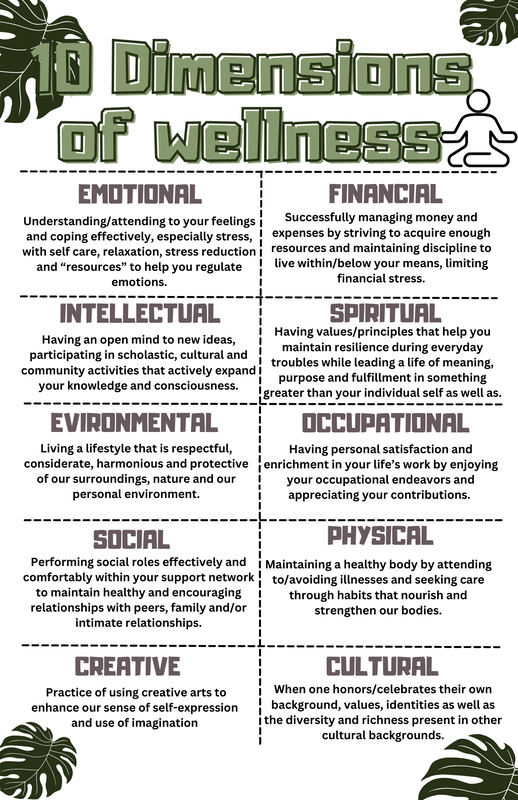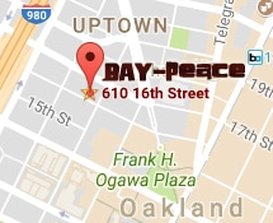|
For the past 5 years, I’ve been on a journey to cultivate more wellness in all that I do. What started as a personal journey, turned into an overflow of my current mission to advocate and organize for more of a wellness-centered work culture not only for myself, but for my people. Especially for my team, comrades, accomplices and allies who are committed to building more safe, just, equitable and liberated spaces for our community at large. In our capitalist society, working to financially support ourselves is a nearly inescapable reality for the majority of us. For those who come from working class families, not only did we watch loved ones work multiple jobs in order to survive and provide for our families but we’ve also been conditioned to associate our value with our productivity or accomplishments. But I’m here to tell you that despite what our families, education and society has conditioned us to believe or forced us into doing, you are inherently valuable, not for what you do, but for who you are! Since many of us have no choice but to work to sustain our living and our family, I’m sharing both individual and collective best practices that create fertile ground for increasing and sustaining well-being in the midst of it all. These have helped me sustain my own well-being and leadership responsibilities as a mother, a Director, entrepreneur, organizer, educator, facilitator. As a Director and youth mentor, I also have an inherent responsibility to take good care of my team because how can I expect them to do their best work in tending to others, if they themselves aren’t allowed the resources and support to tend to themselves? These collective practices help increase retention, build a stronger sense of community and prevent/mitigate collective burnout so that we can do our best work as an organization. Personal practices: Establish a self care routine. Whether you do something in the morning, in the evening or any other time. Find something that you can do for yourself regularly and consistently, that will help you feel grounded and well-taken care. Hydrate and nourish your body. Dehydration and malnourishment exacerbates heightened stress and fatigue. Make sure you are drinking plenty of water and eating nutritious food! Spend undisturbed quality time with loved ones. We are hardwired for human connection and can not thrive in isolation. Make sure you devote time to connect and spend quality time with the people who nourish your whole being. Realistic todo list. It’s easy to get caught up in overwhelm from what seems like an infinitely, never ending to-do list! Sometimes less is more, so prioritize 3-5 most urgent tasks on any given day to ensure productivity but not overwhelm yourself. Gratitude practice. Your attitude determines your latitude. Life gets hard and the struggle is always real! Devoting time and space to regularly practice gratitude for the blessings, no matter how big or small, helps us keep a level head in the midst of our trials and tribulations. Never hesitate to advocate for your well-being. Whether it’s needing a day off, needing more time for a task, or needing a pay raise, advocating for ourselves is the best way to make room for inviting into our lives, the circumstances that are optimal for our growth and well-being. Say no to back to back meetings. Depending on your field, meetings might be a significant part of your workload and meeting fatigue is a real thing! Give yourself space and time to breathe and reset in between meetings so that you can recharge your social battery. Pursue passions or an enjoyable supplemental income. The monotony of “eat, sleep, work, repeat” can make life feel dull but sometimes we need more passion and income to make life enjoyable. Make it a priority to do something you're passionate about, and even better, build supplemental income for yourself doing something you enjoy! Take breaks and use our PTO! You have a right and are legally entitled to take breaks from work, whether it's during your shift or throughout your time as an employee. The “all-gas, no-brakes” mentality is a dangerous one to have. We are not infinitely operating machines, our energy is finite. Take the time you need to rest and recharge so you can be at optimum performance in whatever you choose to pour energy into. Organizational Practices: Provide Wellness stipends. As an advocate for the humanization and well-being of our community, I believe that our team members are our greatest assets and should therefore be our biggest investment. When possible, our budgets should provide monthly supplemental income to support the well-being of our staff. Regular 1x1s. Many say it's not what you know but who you know. Relationships are what makes up the fabric of our community. Leaders should be making regular time to check in with each individual staff to check in on a personal note and support their professional development with devoted 1x1 time for meaningful connection and mentorship. Regular Team meetings. Organizations operate more effectively when the team has a strong sense of unity & solidarity. Whether it's weekly or every other week, make sure your team has time to all get on the same page about collaborative projects, programs and initiatives of your organization. 32 hour work weeks. Since I first joined BAY-Peace in 2015, we have always had 32 hour workweeks. Many folks who work in the field of social justice are not driven by their desire to serve the community and make a real difference, so the energy we pour into our work is not only physical, but often emotional and sometimes even spiritual. Shorter work-weeks helps make sure that our time has ample time to rest and recharge so that they can do their best work in showing up for the communities we serve. Make it work for your people. The idea that “people work for us” is rooted in dehumanizing capitalist frameworks that look at humans as disposable and easily replaceable. It is my firm belief that organizations rooted in social justice movements should also make an effort to work for their people, more specifically, their team members. Leaders like supervisors and executive staff should make every effort to be understanding and accommodate for the personal needs of our team members to support retention and long-term growth of your org. Have regular shut downs. Liberation movements have existed for as long as oppressive circumstances. The transformative work of advocacy, community organizing and social justice activism will be here for the long-haul. Give your organization opportunities for a collective reset during pivotal moments like Winter, Spring or Summer break so that we can all come back ready and energized to do our best work. Collaborative decision making. Unilateral decision making reinforces hierarchical and dictatorship leadership styles, which in-turn, reinforce imbalanced power dynamics. Providing opportunities for collaborative decision-making gives team members a greater sense of ownership and long-term commitment to the work that they are responsible for. Check out our Info sheet on BAY-Peace's 10 dimensions of wellness. In consideration of our well-being, these dimensions provide us with a holistic understanding of the different elements that influence our wellness. By: Leilani SalvadorLeilani has been with BAY-Peace since December 2015. She rose into leadership and became Director in 2017. In addition to BAY-Peace, she runs consulting company, Wage Art, supporting and managing projects, programs or events geared towards promoting wellness and cultural arts.
0 Comments
Leave a Reply. |
About AuthorsLeilani has been the Director of BAY-Peace since 2017. She is a certified Healing-engagement and Somatics practitioner and has been working in arts education, youth-development and community organizing since 2011. Archives
February 2024
Categories |
LOCATION |
|

 RSS Feed
RSS Feed





